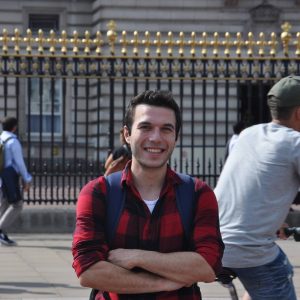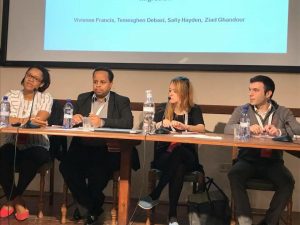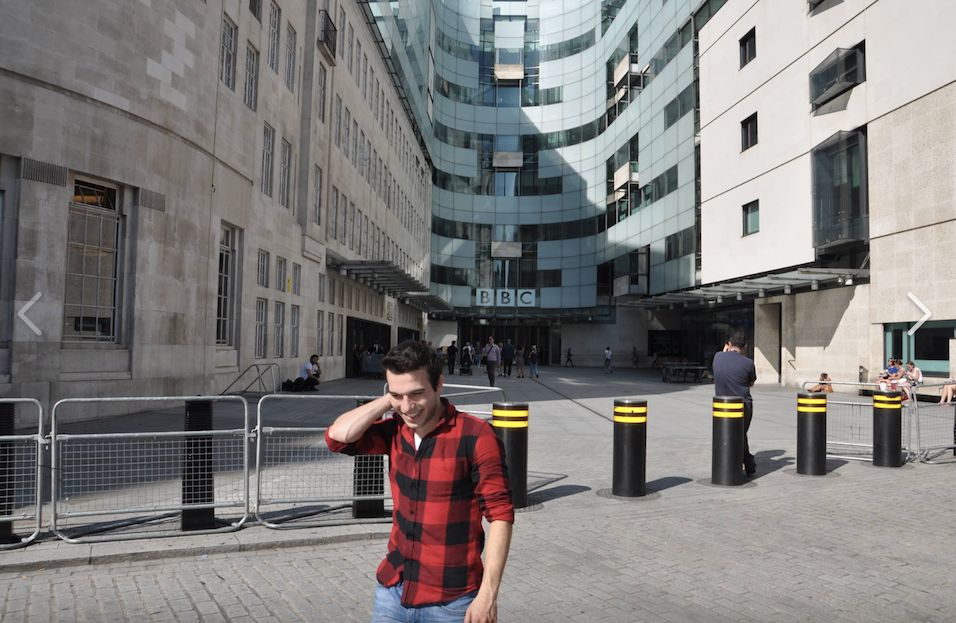BBC broadcasting journalist Ziad Ghandour was one of millions of people to escape their war-torn homeland in 2015. Ziad was forced to leave his English Literature master’s degree behind in Syria to search for a less volatile place to call home. Four months later, out of the back of a lorry, the UK gained an incredibly driven and intelligent young man.
Words by Brittany O’Neill
What do you do now?
I am now a part-time Radio Broadcast Assistant at the BBC. I deal with digital video and edit a variety of film clips.
Before the BBC, I landed my first job through one of the mentors at the RJP, called Samira Shackle, assistant editor of the New Humanist. She told me that KEO Filmswas recruiting a translator for their new documentary Exodus: Our journey to Europe. I went for it and got the job!

What attracted you to becoming a journalist?
The idea of telling a story to improve things in the world inspires me and feeling like I am giving back to society is something I find rewarding.
How did the RJP help you get you to where you are now?
If it was not for the connections I made through RJP, I would not be where I am today. I didn’t study Journalism back at home in Syria, but hearing about the experiences of industry journalists felt motivating.
I didn’t have much confidence at first because my English wasn’t great but RJP reassured me I shouldn’t think about language as an obstacle, because the more important skill to have is ideas. I learned that having access to contacts was extremely important in this industry and that is what RJP provided me with.
Who do you think would be suitable for this project?
Anyone that has some sort of interest in being a journalist or has a willingness to learn. Even though I didn’t have any previous experience of learning journalism, I think that it would also be good for someone who has experience learning the field. This is because contacts are not something you can learn but RJP gives you opportunities to meet people in the industry.
The idea of telling a story to improve things in the world inspires me and feeling like I am giving back to society is something I find rewarding. Ghandour
Do you have any particular highlights looking back on your experience at RJP?
Getting to know other people on the project was fun – I actually hope they run even more social events for the second year of RJP because I would have liked to have even more contact with the people I met.
I also won the Migration Media Award which was a great achievement. This was for the reporting that I worked on with Sally Hayden about the ‘Road back to Damascus’. It was published for the first time in Arabic in the Irish Times. The investigation was also shortlisted for One World Media award.

Do you have any advice for future participants of RJP?
Firstly, I would reassure people that they should not be afraid to do some work for free before getting their first paid job. I did multiple work experience where I was working for free before I got my first paid journalism job. I did unpaid work experience at the BBC and also as a researcher for Air Wars.
The RJP are very supportive in that sense and for one work experience that I did, they even paid my expenses for the days that I worked which was a huge help.
During my time, I had a problem with my housing situation and RJP were even supportive of my personal life. I was recommended a homeless charity by one of my mentors and I managed to get the help that I needed and things got better from there.
